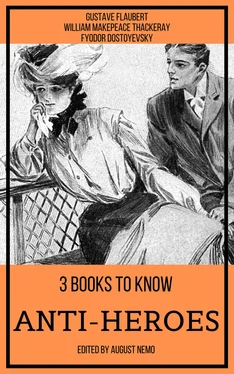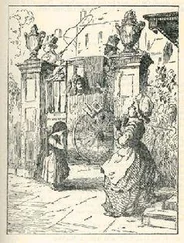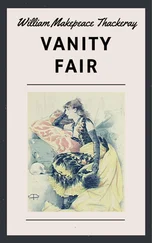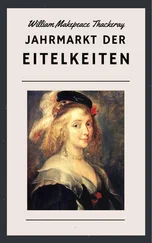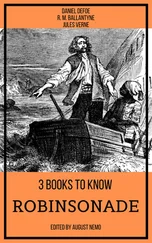But the squires ate my dinners very readily for all that, and old Doctor Huff himself was compelled to allow that my venison and turtle were most orthodox. The former gentry I knew how to conciliate, too, in other ways. There had been only a subscription pack of fox-hounds in the county and a few beggarly couples of mangy beagles, with which old Tiptoff pattered about his grounds; I built a kennel and stables, which cost L30,000, and stocked them in a manner which was worthy of my ancestors, the Irish kings. I had two packs of hounds, and took the field in the season four times a week, with three gentlemen in my hunt-uniform to follow me, and open house at Hackton for all who belonged to the hunt.
These changes and this train de vivre required, as may be supposed, no small outlay; and I confess that I have little of that base spirit of economy in my composition which some people practise and admire. For instance, old Tiptoff was hoarding up his money to repair his father’s extravagance and disencumber his estates; a good deal of the money with which he paid off his mortgages my agent procured upon mine. And, besides, it must be remembered I had only a life-interest upon the Lyndon property, was always of an easy temper in dealing with the money-brokers, and had to pay heavily for insuring her Ladyship’s life.
At the end of a year Lady Lyndon presented me with a son—Bryan Lyndon I called him, in compliment to my royal ancestry: but what more had I to leave him than a noble name? Was not the estate of his mother entailed upon the odious little Turk, Lord Bullingdon? and whom, by the way, I have not mentioned as yet, though he was living at Hackton, consigned to a new governor. The insubordination of that boy was dreadful. He used to quote passages of ‘Hamlet’ to his mother, which made her very angry. Once when I took a horsewhip to chastise him, he drew a knife, and would have stabbed me: and, ‘faith, I recollected my own youth, which was pretty similar; and, holding out my hand, burst out laughing, and proposed to him to be friends. We were reconciled for that time, and the next, and the next; but there was no love lost between us, and his hatred for me seemed to grow as he grew, which was apace.
I determined to endow my darling boy Bryan with a property, and to this end cut down twelve thousand pounds’ worth of timber on Lady Lyndon’s Yorkshire and Irish estates: at which proceeding Bullingdon’s guardian, Tiptoff, cried out, as usual, and swore I had no right to touch a stick of the trees; but down they went; and I commissioned my mother to repurchase the ancient lands of Ballybarry and Barryogue, which had once formed part of the immense possessions of my house. These she bought back with excellent prudence and extreme joy; for her heart was gladdened at the idea that a son was born to my name, and with the notion of my magnificent fortunes.
To say truth, I was rather afraid, now that I lived in a very different sphere from that in which she was accustomed to move, lest she should come to pay me a visit, and astonish my English friends by her bragging and her brogue, her rouge and her old hoops and furbelows of the time of George II.: in which she had figured advantageously in her youth, and which she still fondly thought to be at the height of the fashion. So I wrote to her, putting off her visit; begging her to visit us when the left wing of the castle was finished, or the stables built, and so forth. There was no need of such precaution. ‘A hint’s enough for me, Redmond,’ the old lady would reply. ‘I am not coming to disturb you among your great English friends with my old-fashioned Irish ways. It’s a blessing to me to think that my darling boy has attained the position which I always knew was his due, and for which I pinched myself to educate him. You must bring me the little Bryan, that his grandmother may kiss him, one day. Present my respectful blessing to her Ladyship his mamma. Tell her she has got a treasure in her husband, which she couldn’t have had had she taken a duke to marry her; and that the Barrys and the Bradys, though without titles, have the best of blood in their veins. I shall never rest until I see you Earl of Ballybarry, and my grandson Lord Viscount Barryogue.’
How singular it was that the very same ideas should be passing in my mother’s mind and my own! The very title she had pitched upon had also been selected (naturally enough) by me; and I don’t mind confessing that I had filled a dozen sheets of paper with my signature, under the names of Ballybarry and Barryogue, and had determined with my usual impetuosity to carry my point. My mother went and established herself at Ballybarry, living with the priest there until a tenement could be erected, and dating from ‘Ballybarry Castle;’ which, you may be sure, I gave out to be a place of no small importance. I had a plan of the estate in my study, both at Hackton and in Berkeley Square, and the plans of the elevation of Ballybarry Castle, the ancestral residence of Barry Lyndon, Esq., with the projected improvements, in which the castle was represented as about the size of Windsor, with more ornaments to the architecture; and eight hundred acres of bog falling in handy, I purchased them at three pounds an acre, so that my estate upon the map looked to be no insignificant one. [Footnote: On the strength of this estate, and pledging his honour that it was not mortgaged, Mr. Barry Lyndon borrowed L17,000 in the year 1786, from young Captain Pigeon, the city merchant’s son, who had just come in for his property. At for the Polwellan estate and mines, ‘the cause of endless litigation,’ it must be owned that our hero purchased them; but he never paid more than the first L5000 of the purchase-money. Hence the litigation of which he complains, and the famous Chancery suit of ‘Trecothick v. Lyndon,’ in which Mr. John Scott greatly distinguished himself.-ED.]
I also in this year made arrangements for purchasing the Polwellan estate and mines in Cornwall from Sir John Trecothick, for L70,000—an imprudent bargain, which was afterwards the cause to me of much dispute and litigation. The troubles of property, the rascality of agents, the quibbles of lawyers, are endless. Humble people envy us great men, and fancy that our lives are all pleasure. Many a time in the course of my prosperity I have sighed for the days of my meanest fortune, and envied the boon companions at my table, with no clothes to their backs but such as my credit supplied them, without a guinea but what came from my pocket; but without one of the harassing cares and responsibilities which are the dismal adjuncts of great rank and property.
I did little more than make my appearance, and assume the command of my estates, in the kingdom of Ireland; rewarding generously those persons who had been kind to me in my former adversities, and taking my fitting place among the aristocracy of the land. But, in truth, I had small inducements to remain in it after having tasted of the genteeler and more complete pleasures of English and Continental life; and we passed our summers at Buxton, Bath, and Harrogate, while Hackton Castle was being beautified in the elegant manner already described by me, and the season at our mansion in Berkeley Square.
It is wonderful how the possession of wealth brings out the virtues of a man; or, at any rate, acts as a varnish or lustre to them, and brings out their brilliancy and colour in a manner never known when the individual stood in the cold grey atmosphere of poverty. I assure you it was a very short time before I was a pretty fellow of the first class; made no small sensation at the coffee-houses in Pall Mall and afterwards at the most famous clubs. My style, equipages, and elegant entertainments were in everybody’s mouth, and were described in all the morning prints. The needier part of Lady Lyndon’s relatives, and such as had been offended by the intolerable pomposity of old Tiptoff, began to appear at our routs and assemblies; and as for relations of my own, I found in London and Ireland more than I had ever dreamed of, of cousins who claimed affinity with me. There were, of course, natives of my own country (of which I was not particularly proud), and I received visits from three or four swaggering shabby Temple bucks, with tarnished lace and Tipperary brogue, who were eating their way to the bar in London; from several gambling adventurers at the watering-places, whom I soon speedily let to know their place; and from others of more reputable condition. Among them I may mention my cousin the Lord Kilbarry, who, on the score of his relationship, borrowed thirty pieces from me to pay his landlady in Swallow Street; and whom, for my own reasons, I allowed to maintain and credit a connection for which the Heralds’ College gave no authority whatsoever. Kilbarry had a cover at my table; punted at play, and paid when he liked, which was seldom; had an intimacy with, and was under considerable obligations to, my tailor; and always boasted of his cousin the great Barry Lyndon of the West country.
Читать дальше
